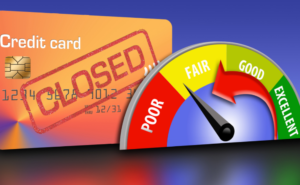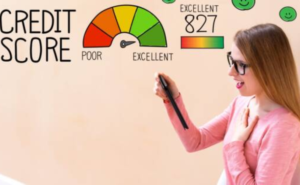9 Ways to Fix Your Credit Fast
If you are in search of a quick solution to boost your credit score, you should be aware that there is no specific strategy that can miraculously enhance your credit score in a matter of days. However, you can take certain steps to improve your rankings in a short time. However, it all relies on your specific situation.
Your credit score is extremely significant for your financial well-being. You’ll need a decent credit score to get a nice rewards credit card. A strong credit score helps you obtain a lower mortgage interest rate. And for this purpose, you’ll need a good credit score. We’ll tell you about the 9 ways to fix your credit score.
The 9 Ways That Might Help You Fix Your Credit Fast
Here are some ways to improve your credit score over time.
1. Reduce Your Credit Utilization Ratio
Since it is part of a component that accounts for 30% of your credit score, your credit usage ratio is a significant indicator. Credit utilization is the quantity of credit you use divided by the total amount of available credit.
Do not use more than 30% of your credit card limit as a basic rule of thumb. Many experts recommend keeping it below 10% if at all feasible. Most credit cards report your credit usage to the credit agencies once a month. Your most current statement balance is frequently the figure on your credit report.
Your credit card utilization is 20% if you charged $10,000 on your cards and your total credit limit is $50,000. Credit bureaus calculate usage based on your statement balance, even if you pay off your charges each month.
Consider a debt reduction approach if you’re drowning in debt. You will have less debt and more accessible credit if you keep track of your expenditures.
2. Timely Payment
Making frequent on-time payments is a good strategy to add positive information to your credit record. You demonstrate to both your existing creditors and any future lenders that you can properly handle debt.
You may avoid missing a bill by setting up recurring monthly payments. If you’re uncertain about utilizing auto-pay, you may also use your calendar to arrange monthly/weekly payments as a reminder to keep your payments on track.
If you pay off your debt in full each month, you’ll not only save money on interest, but you’ll also improve your credit score. Making all of your payments on time improves your credit score by demonstrating to lenders that you’re a dependable borrower. Defaulting on your payments, on the other hand, defaulting on your payments sends the opposite impression.
3. Dispute Credit Report Inaccuracies
AnnualCreditReport.com provides free credit reports from each of the three major credit agencies. Check them all carefully, and if you discover something on your report that you don’t feel should be there, such as an inaccurately reported late payment, submit a dispute with the relevant agency.
You can also notify the relevant loan or credit card issuer, who would likely update the information with the credit agencies. Your credit ratings may improve if you address any concerns.
4. Keep track of Your Credit Report
Keeping track of your credit report would let you know about any inaccuracy as soon as it appears on your credit report. Hence you’d be able to dispute the error as soon as it shows up. This would give you an edge and help you boost your credit score back up again.
5. Close Extra Credit Cards
Unless you have a dire need to use any credit cards, it’s usually best to have just one – or none if you can get by with only cash and a debit card.
Closing those different credit card accounts will lower the amount of money you may borrow, which has two advantages.
To begin with, it will lower your desire to take on additional debt. Second, it will help you boost your credit score because banks typically evaluate loan applications based on the idea that the borrower’s credit cards are permanently maxed up.
6. Apply For Loans Within a Short Time
Having a lot of hard inquiries quickly might indicate to lenders that you’re looking for credit lines you won’t be able to pay back. On the other hand, smart borrowers will apply for several loans of the same sort to compare rates, such as a mortgage, auto loan, or personal loan.
As a result, credit scorers evaluate numerous hard inquiries for the same loan type done simultaneously as if they were all made simultaneously, lowering the negative impact on your credit score.
As a strategy, aim to submit applications on time, ideally within two weeks. Remember that credit card applications aren’t given the same leeway; they’ll all be counted separately regardless of when they’re submitted.
7. Minimize Credit Applications
When you’re perceived as a responsible borrower and credit card user, your credit score rises; when you’re not, it drops.
With that in mind, making a small number of credit applications is beneficial for your credit score, while making a large number is bad. Why? The rationale for this is that someone who submits a small number of applications is often thought to be more reliable than someone who submits a large number.
If you don’t need a credit card or a loan, don’t apply. Ask the supplier to assess your chances of acceptance before applying for any credit product; if your chances are slim, it could be preferable not to apply.
Don’t rush the process by applying for three credit cards or three personal loans simultaneously; instead, make just one application, even if it means waiting longer.
8. Get a Credit Builder Loan
Credit builder loans might help you improve your credit score by allowing you to lend money to yourself. For up to 24 months, you make payments monthly into an interest-bearing certificate of deposit. The bank informs the three credit bureaus about your monthly payment. You will get the CD balance less administrative costs after the borrowing period.
9. Responsibly Add to Your Credit Mix
Lenders look for various accounts in your credit report to demonstrate that you can manage different sorts of credit. Installment loans, for which you pay a certain amount each month, and revolving credit, which has a certain credit limit that you can charge up to, are two examples.
If you have one sort of credit, diversifying your credit mix might help you enhance your credit mix. However, because your credit mix factors for just 10% of your FICO Score, don’t apply for credit only to raise your Score. This may put you in danger of incurring debt that you cannot repay.
Final Word
Adding positive information to your credit report and removing bad information will enhance your chances of gaining credit approval and better loan terms—but it won’t happen overnight. The duration of a borrower’s credit history impacts overall creditworthiness since it indicates how regular a borrower is with making on-time payments.
Lenders are more confident in assessing your creditworthiness if you have a long credit history. Although credit problems can have a detrimental impact on many elements of your life, there are actions you can take to counter the problem. While it may take some time, taking action now might lead to new opportunities.
Improving your credit isn’t a quick process. A good credit score is usually the consequence of years of responsible financial activity. While some tactics may allow you to make tiny gains fast, it will take time to enter the ranks of people with the greatest credit ratings.






